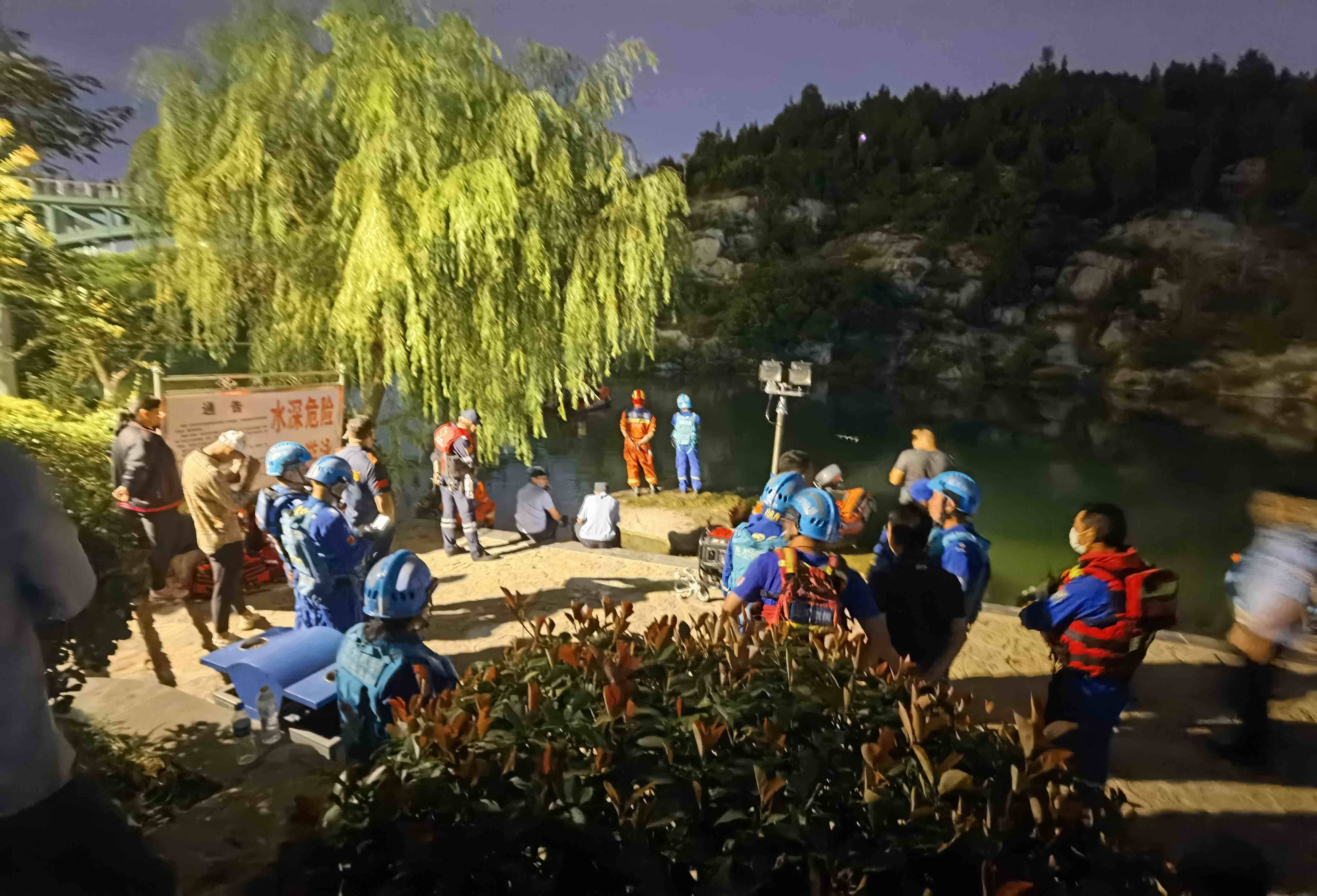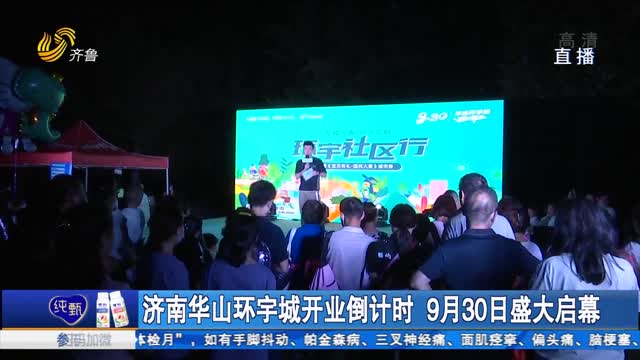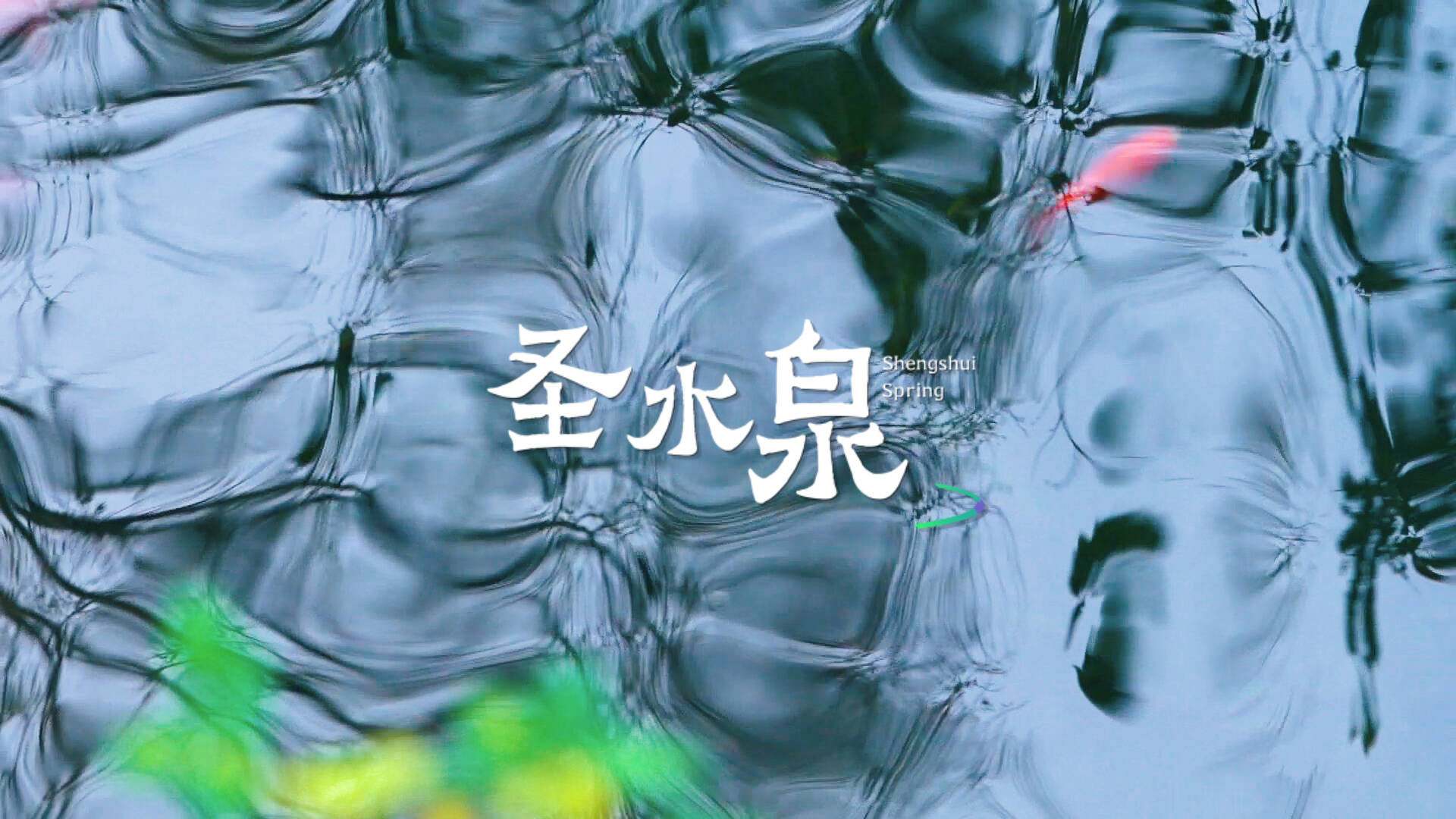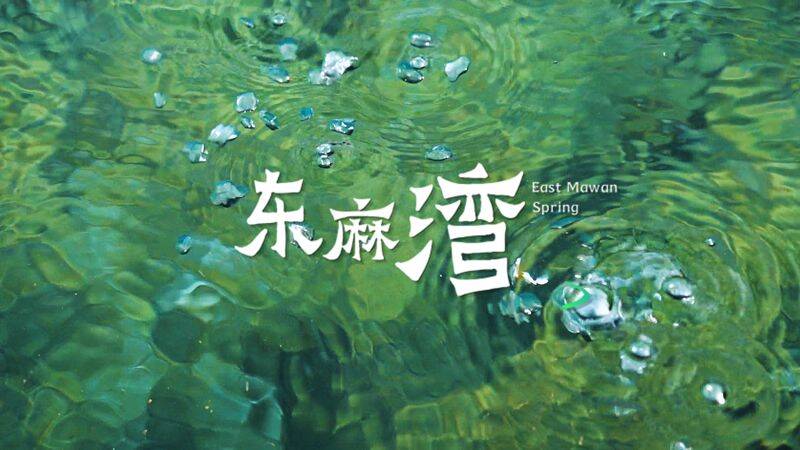Time to feel mellow
来源:中国日报英文版
2022-09-06 09:17:09
Original Headlines:Time to feel mellow
Source:中国日报英文版

A villager works at a rice field in Ji'an, Jiangxi province.[Photo provided to China Daily]
As we move through autumn, blue skies, crystalline dewdrops and the bejewelled flora usher in one of the more transient, but aesthetic, periods, Zhang Lei reports.
It is The Book of Songs, the oldest existing collection of Chinese poetry comprising 305 works dating back to the Western Zhou Dynasty (c. 11th century-771 BC), that accounts for the poetic disposition of bailu, or White Dew, the 15th of the Twenty-Four Solar Terms, which falls on Wednesday this year.
An excerpt from the chapter The Reed, translated by the well-known scholar Xu Yuanchong (1921-2021), stands the test of time.
Xu is best known for translating Chinese ancient poems into English and French. This is one of his most acclaimed renderings: "Green, green the reed, dew and frost gleam. Where's she I need, beyond the stream."
The retreating female figure, set against the backdrop of an autumn scene, where trees and bushes are covered in frost and on every twig glittered crystal dewdrops, can represent everything dreamy about the season.

A harvest of chrysanthemum in Hebei province.[Photo provided to China Daily]
The ancient Chinese described it as "dew condensed into piteous whiteness". In the White Dew season, the temperature varies widely between day and night. The vapor in the air condenses into small water droplets at night, which attach themselves densely to the stems, leaves and petals of flowers and trees. The sunlight in the morning accentuates the crystalline flawlessness of the droplets. The ancients have brought this beauty of White Dew to the page.
It is mid-autumn, yet the sky looks higher with fewer clouds; the air is crisp with a gentle breeze skimming through the leaves. Lush green vegetation and blooming flowers, however, cast their last splendor of the year; the moon's full round orb shines high in the night sky, draping its velvety light over everything.
Life on Earth both flourishes and begins to wither. White Dew is a turning point, and with every footstep of this poetic solar term, the weather will gradually turn cooler.
Folklore expert Guo Wenbin recommends soaking the feet at night "with moderate warm water for about a quarter of an hour, until your body is slightly sweaty".
"Using the special function of Yongquan acupoint, a point on the bottom of the foot, enables us to reduce dryness and tonify the kidneys," he says.

An insect at Luocheng Park, Tangshan, Hebei province.[Photo provided to China Daily]
Collecting dewdrops is one of the most important folk customs during White Dew, especially in Southwest China. In the region's rural areas, people still believe the autumn dew should be collected on a plate, and this will herald a hunger-free year. Some still believe to this day that the autumn dew collected in the morning can cure disease and quench thirst. The white dew in autumn is also considered to be a magic medicine for eye diseases, and there is a folk custom of collecting dewdrops to wash the eyes.
Compared with major solar terms such as the Spring Equinox and Autumn Equinox, White Dew is a minor term with which most of the folk activities are regional, with distinct local characteristics.
Folklore expert Liu Xiaochang, a native of Chengdu, Sichuan province, says that, back in the old days, it was natural for people there to collect dew from the herbs.
"We would take a porcelain bowl to collect the dew, and then mix it with the ink. We dab this 'ointment' on mosquito bites. People believe it has the ability to relieve the itching," he says.
In Liu's recollection, for locals, White Dew is more than just collecting the dew. The arrival of White Dew is the harbinger of the approaching cold and bleak late autumn, especially at night, and people start to wear more clothes.

Egrets over the Hunhe River in Shenyang, Liaoning province.[Photo provided to China Daily]
On this day, a home-cooked dish of stir-fried pork with chives might appear on the table in many Chengdu households. Liu says in the old days, in Chengdu, there was a custom of eating chives on the day of White Dew, and the pungent flavor is a childhood memory for every local senior. The dish must be served with Baoning vinegar, the local staple vinegar, as well as pickled red peppers. The sour taste is an autumn ritual for many.
In other parts of the country, eating sweet potatoes on White Dew is believed to prevent gastric acid.
Gao Wei, secretary-general of the Beijing Folklore Society, says that although White Dew does not enjoy a high profile compared with other iconic solar terms, it has peculiar folk customs of its own.
"For example, people will eat longan and sweet potatoes in season, especially in South China. They will also hold sacrificial ceremonies to pray for blessings, such as sacrificing to Yu the great (a legendary ruler in ancient China who was famed for his introduction of flood control) in Jiangsu province," he says.
Gao says the ancients believed that everything in nature had a soul and was dominated by supernatural forces. Therefore, when encountering inexplicable phenomena, they would perform sacrifices to gain the blessing of the gods, and then seek psychological comfort.
Sacrificing to Yu the great by the Taihu Lake in Jiangsu follows this logic. Gao explains these sacrifices are all related to water, because after the arrival of autumn, the precipitation will decrease significantly.
Fishermen on the shore of the Taihu Lake regard Yu as the "Water Bodhisattva". In every White Dew season, a large quantity of incense will be burnt here to worship the ruler.
During the event, Qing Ding Pearl is a must-watch play, in which a poor fisherman leads his daughter and some Robin Hood-like bandits to combat a powerful baron and his corrupt officials.
In Fuzhou, Fujian province, White Dew is not complete without the longan. The folklore has it that eating longan on this day is equivalent to eating a chicken. The longan is to nourish the spleen and the blood, and to calm the mind in traditional Chinese medicine. It can also help treat anemia, insomnia, neurasthenia and many other diseases. Moreover, the longan is at its largest during White Dew season.

Squids are dried at a factory in Zhoushan, Zhejiang province.[Photo provided to China Daily]
White Dew Festival is held in Wenzhou, Zhejiang province. In its Cangnan and Pingyang counties, people collect the "10 whites" on this day in which to simmer black-bone, white-feathered chickens or ducks. It is said that they can nourish the body and remove arthritis. The "10 whites" are 10 kinds of herbs and plants with the word "white" in the name, such as white hibiscus, which in turn literally corresponds to "white dew".
In Nanjing, Jiangsu province, people have a custom of drinking white dew tea. From the beginning of the term to mid-October, it is a good time for the growth of tea trees. Due to cooler weather, water vapor condenses on the tea tree at night. At this time, the white dew tea leaves are mellow and fragrant. White dew tea is different from spring and summer tea. After a whole summer, the tea seems to have taken on the season's unique taste. The white dew tea is neither as fresh or tender as spring tea. It is not brewed, nor as dry and bitter as summer tea, but has a unique sweet and mellow fragrance.
It is also a season of harvest. In the countryside in Jiangsu and Zhejiang provinces, every year when White Dew arrives, every family uses grain to make wine for entertaining guests. People often bring white dew rice wine to the city for sale. White dew wine is made from glutinous rice, sorghum and other grains.
White Dew season also sends the wild geese to the south. At this time, the birds will migrate to the south, and prepare to hoard food for winter.
White Dew signifies transience, but at the same time it gives people room for imagination, a poetic feeling that reminds people of life, says Guo the folklore expert. "Although it is short, we make the most of it and cherish the season in the present moment. In some certain sense, it answers the Chinese philosophical creed that 'transience is eternity'," he says.
"The inspiration it gives us is that life is short, we must seize the moment, enjoy our life and our profession, and enjoy the simple details of life. It's a time to seize eternity, to appreciate the beauty of life; to conjure up the image of dewdrops being condensed into frost. Let us live up to our time, our youth and our lives, so that when you look back, there are no regrets."
想爆料?请登录《阳光连线》( http://minsheng.iqilu.com/)、拨打新闻热线0531-66601253,或登录齐鲁网官方微博(@齐鲁网)提供新闻线索。齐鲁网广告热线0531-66601253,诚邀合作伙伴。
'Monster' Xu back on the prowl
- Xu Can in training.Xu Can, China's former featherweight world champion known as the "Monster", has recovered from injury and wi...[详细]
- 中国日报英文版 2022-09-06

Changing minds on mental health
- Wang Zhen, the deputy director of the Shanghai Mental Health Center, shares his research results with his colleagues. In fac...[详细]
- 中国日报网英文版 2022-09-06

2022年济南市历城区中青年干部培训班开班
- [详细]
- 齐鲁网 2022-09-05

济南南山交警:“雷霆行动”火力全开 查获多起非法改装机车
- [详细]
- 齐鲁网 2022-09-05

争创标杆开新局 质量强市促发展 2022年“质量月”活动正式启动
- [详细]
- 齐鲁网 2022-09-05

排位第一!济南市章丘区荣获“山东省民间文化艺术之乡”建设典型案例
- [详细]
- 齐鲁网 2022-09-05

济南市历城区市场监管强化食品安全多元共治
- [详细]
- 齐鲁网 2022-09-05

让人才安心!印度籍博士后子女在济南历城顺利入学
- [详细]
- 齐鲁网 2022-09-05

济南:科技助力 为寻亲插上信息化的翅膀
- [详细]
- 齐鲁网 2022-09-05

济南市组织开展“中华慈善日”主题宣传活动
- [详细]
- 齐鲁网 2022-09-05

最高可满减600元!2022年第二期济南市“泉城购”家电消费券活动来了!
- [详细]
- 齐鲁网 2022-09-05

最高可领取7000元!济南市第三期政府汽车消费券来了!
- [详细]
- 齐鲁网 2022-09-05

济南济阳区重点项目建设上演“速度与激情”
- [详细]
- 齐鲁网 2022-09-05














网友评论仅供网友表达个人看法,并不表明齐鲁网同意其观点或证实其描述我来说两句